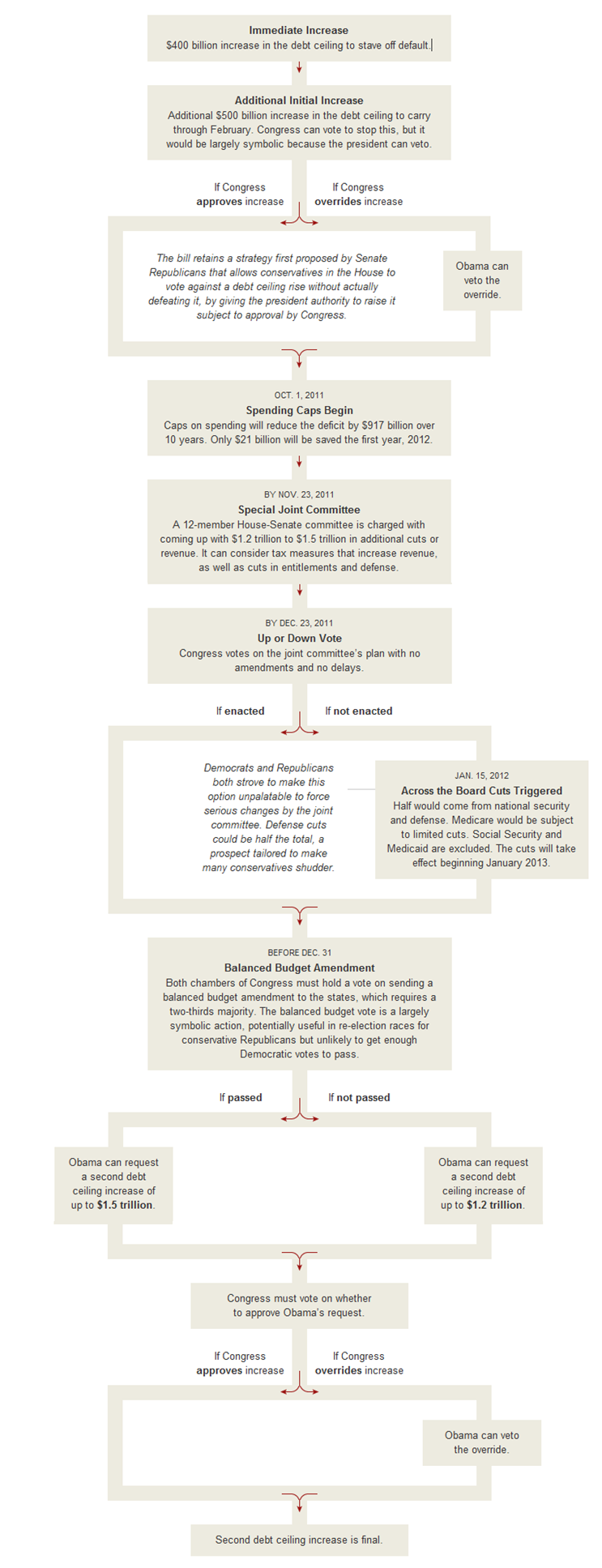Replies to post #149143 on Tornado Alley (PROG)
07/29/11 12:42 PM
RYAN: What I never really agreed with is the idea that we would expect Harry Reid and Nancy Pelosi to deliver 40 [and] 15 votes from Democrats for our version of the Balanced Budget Amendment. You know, I just never thought that was realistic, to demand Democrats vote against their conscious for our version of the Balanced Budget Amendment. So I just never thought that would work.


07/29/11 2:19 PM

07/29/11 2:47 PM
Telephone circuits were reported at near capacity around 11:45 a.m. The office of the House’s chief administrative officer did not yet have total call-in figures, but spokesman Dan Weiser told The Hill: “Call volume is up, some people may experience some busy signals.”




07/29/11 3:05 PM


07/30/11 2:47 PM
07/31/11 10:14 AM
$2.8 trillion in deficit reduction with $1 trillion locked in through discretionary spending caps over 10 years and the remainder determined by a so-called "Super Committee."
The Super Committee must report precise deficit-reduction proposals by Thanksgiving.
The Super Committee would have to propose $1.8 trillion in spending cuts to achieve that amount of deficit reduction over 10 years.
If the Super Committee fails, Congress must send a balanced-budget amendment to the states for ratification. If that doesn't happen, across-the-board spending cuts would go into effect and could touch Medicare and defense spending.
No net new tax revenue would be part of the special committee's deliberations.



08/05/11 3:53 PM

08/12/11 5:36 PM

08/13/11 2:33 PM
A Standard & Poor’s director said for the first time Thursday that one reason the United States lost its triple-A credit rating was that several lawmakers expressed skepticism about the serious consequences of a credit default — a position put forth by some Republicans.
Without specifically mentioning Republicans, S&P senior director Joydeep Mukherji said the stability and effectiveness of American political institutions were undermined by the fact that “people in the political arena were even talking about a potential default,” Mukherji said.
“That a country even has such voices, albeit a minority, is something notable,” he added. “This kind of rhetoric is not common amongst AAA sovereigns.”
| Volume | |
| Day Range: | |
| Bid Price | |
| Ask Price | |
| Last Trade Time: |